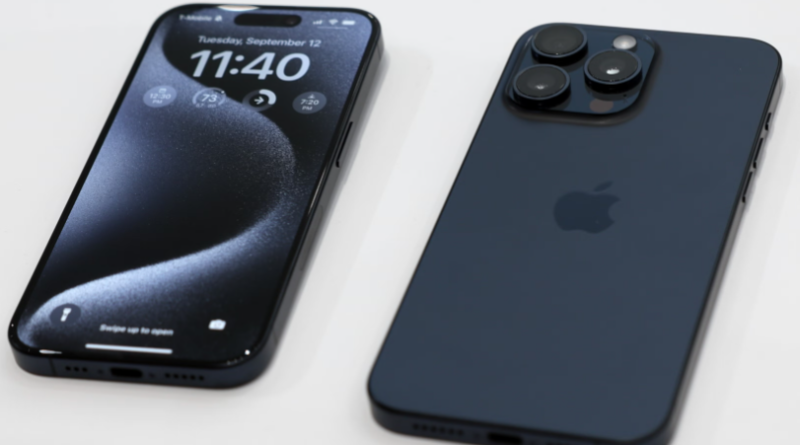iPhone 16 is here and ‘Apple Intelligence’ AI features
Apple aimed to present the latest iteration of iPhone 16 as devices fundamentally centered around artificial intelligence during its most significant product event of the year, as the technology leader strives to secure a leading role in the competitive landscape of this technology.
The company asserted that the iPhone 16, the newest model of the smartphone, was crafted “from the ground up” to incorporate its “Apple Intelligence” suite of AI functionalities, which encompasses capabilities such as generating and editing text to align with specific tones, as well as utilizing the device’s camera for real-world object recognition.
The event, conducted at Apple’s headquarters in Cupertino, California, was marked by the slogan “It’s glowtime,” featuring the company’s logo enveloped in a vibrant aura. Through a series of high-quality videos, Apple executives showcased a variety of new hardware and emphasized the integration of AI within their products.
“We are excited to unveil the first iPhone 16 meticulously designed for Apple Intelligence and its groundbreaking features,” stated Apple’s CEO, Tim Cook, in a pre-recorded video during the event.
The “Apple Intelligence” system will enable iPhones to execute a variety of tasks, including photo editing, object identification through the camera, and text generation. In a segment dedicated to promoting Apple Intelligence, the company promised the capability to create custom emojis based solely on prompts such as “cowboy frog.”
These AI functionalities will also empower users to search through photos, emails, and texts by entering descriptions or issuing voice commands to the Siri voice assistant.
The company is set to release its AI integrations for users of US English as a complimentary software update next month. Following the event, Apple’s stock experienced a slight decline of approximately 1%.
The newly unveiled iPhone 16 features a “bold new palette” of colors and boasts a more durable display. It also introduces an “action button” that allows for customizable functions, alongside the new A18 chip designed to enhance performance.
During the event, Apple introduced an updated version of its AirPod headphones and unveiled a redesigned Apple Watch, which now includes a larger screen, faster charging capabilities, and health app functionalities such as sleep monitoring. Additionally, the AirPods Pro 2 will now serve as a hearing aid for individuals with mild to moderate hearing impairment.
Apple’s autumn product launch has evolved into one of the company’s most significant annual occasions, typically highlighting a variety of new devices and establishing the atmosphere for the holiday shopping season, which is Apple’s most active and lucrative period. These new offerings often generate considerable speculation within the technology sector and among the company’s enthusiasts.
In anticipation of the event, there was widespread discussion regarding Apple’s transition from LCD to OLED screens, as well as rumors about a dedicated photo button. Initial reports also suggested that the tech giant would elaborate on its AI features branded as “Apple Intelligence.”
Earlier this year, at Apple’s Worldwide Developers Conference (WWDC), the company revealed various strategies for incorporating AI capabilities into its products and services. A major announcement was a collaboration with OpenAI to integrate ChatGPT technology with Apple’s Siri voice assistant, with promises of a more “natural” interaction experience.
Apple’s recent announcements at the WWDC event, along with its commitment to enhance artificial intelligence capabilities, mark a significant shift for the company, especially after it delayed the introduction of consumer-oriented AI tools longer than competitors like Microsoft. This reluctance to implement new generative AI features had previously caused frustration among investors and analysts who were eager for Apple to unveil its version of the technology.
This year, Apple’s stock price has experienced substantial growth, driven by market enthusiasm for generative AI and overall revenue increases that have positively impacted major technology companies. Nevertheless, the company has faced challenges due to a global decline in smartphone sales in recent years, compounded by the emergence of competitors such as Huawei in critical markets, particularly in China. Huawei is anticipated to launch its own new product line shortly after Apple’s event.
Additionally, the backdrop of the Department of Justice’s extensive antitrust lawsuit against Apple adds further complexity, as it accuses the company of establishing and sustaining an illegal monopoly in the smartphone sector. Apple has firmly denied these allegations, although the resolution of the case may take several years. SOURCE: TheGuardian.Com. Article by Nick Robins-Early




